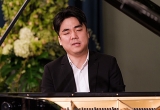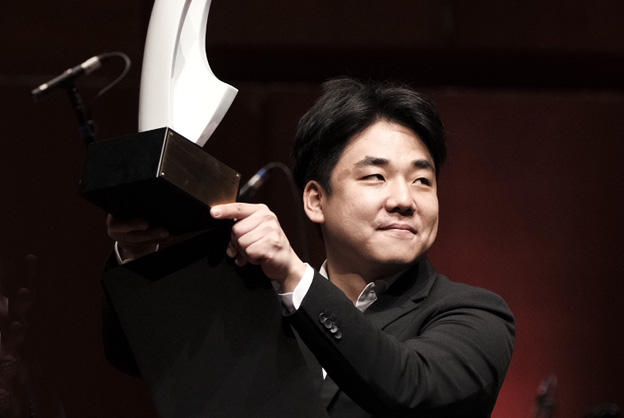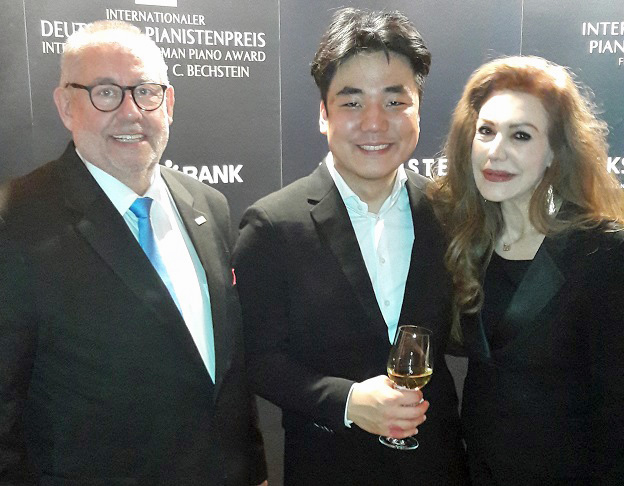You have participated in a lot of competitions. Do you like to compete?
I think, I didn’t did take part in that much competitions, less than others. But I’m sure, though competitions are not everything for young musicians, they can sometimes be really helpful. So, let’s say, I definitely don’t like competitions, but sometimes I need them.
What is the benefit of a competition like the German Piano Award?
The German Piano Award is special and different from other competitions. It’s more like a Piano festival. In the first round you have six pianists only and six recitals. But you have to prepare recitals for the others rounds as well, plus two concertos. It’s like a concert schedule of one week.
You are pretty busy by now, with a lot of concerts, so you don’t have to worry about not making a career?
Career is really important, and I think I’m on a good way, with the help of the awards I won. From now on I just want to focus my music and my concert career.
It looks like you are currently dividing yourself between Korea and Germany. Do you think this will continue or do you imagine that Germany or Europe in general could become the most important territory for you?
As you know, the most important classical territory is Europe and especially Germany. So I would be really honoured, if I could continue to have a lot of concerts in Germany. But I was born in Korea, so I have to play in Korea too.
On the other hand, you are still a student. How do you manage both activities?
Actually, I’m already done with all my classes. I only have to graduate. But still I want to take lessons with my Professor. It is really refreshing to have time for a conversation with Professor Arnulf von Arnim. So that’s the only reason why I was extending my studies.
Many concerts means probably many different works to play and subsequently rehearsing a lot. How does that work?
I started as a professional pianist two years ago, and at that time I was a bit afraid for exactly that reason. But nowadays I realize that the most important thing for a great concert is ‘melody singing’. It must deliver to the audience a melodic line. That’s my focus.
You play solo recitals and concerts with orchestra. Do you have any preference?
For me concerts with orchestra are more enjoyable. In a recital you are always lonely and sometimes really need that mood. But concerts with orchestra involve not only you, and I like that very much.
And what about chamber music?
Yes, this is a most interesting work!
Do you have any preferred composers?
I think, for the moment it is Schubert. I don’t know why, but it is always fresh…
You grew up in Seoul. How did you get in touch with the piano? Do you come from a musical family?
In our generation almost every Korean kid learns an instrument. I think there is really a boom to learn classical instruments. I’m also one of those kids and finally became a pianist.
And when did you think about becoming a professional pianist?
I never really decided that. I started playing the piano when I was 4 years old, and I became a pianist very naturally.
What is most striking difference between the musical life in your native Korea and the one you experience in Germany or, more generally, in Europe?
Basically there are not so many differences between Korea and Germany, except for the design of cities and architecture. In Korea everything is really modern, while Germany has a lots of old and classic buildings, which are really helpful to imagine the 18th or 19th centuries.
With your German Piano Award comes the production of a CD. Do you have already an idea about the program?
I think I will record a mix of works from the classic and the romantic repertoire. I always enjoyed this periods. And I’m really looking forward to have my first recording! I want to express my special thanks to the International Piano Forum Frankfurt and Mrs. Maleki for giving me this opportunity.
























